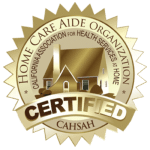With age, vitamin B12—an essential nutrient crucial to many body functions—increases. Helping seniors get the right amount of B12 and helping them understand its importance is crucial. This is easily done with the support of loved ones and home care providers.
What Is the B12 Vitamin?
Water-soluble vitamin B12, also referred to as cobalamin, is present in certain foods naturally, added to others, and sold as a dietary supplement. It is essential for red blood cell formation, brain function, and the health of nerve tissue.
Why Is B12 Vital for Seniors?
It’s common knowledge that seniors must navigate a variety of changes as they age. Some of those changes impact how well the body can absorb and use nutrients.
For seniors, vitamin B12 is especially crucial for the following reasons:
Prevent Anemia: The production of healthy red blood cells depends on vitamin B12. Fatigue and weakness are symptoms of megaloblastic anemia, which can result from a deficiency in B12. Seniors who have sufficient levels of B12 are less likely to suffer from these symptoms, but those who don’t have enough B12 will need to find ways to add it to their daily routine.
Promotes Mental Wellness: Cognitive decline is a common concern as the years pass. B12 lowers the risk of neurodegenerative diseases and supports nerve function, both of which are important for maintaining brain health. According to studies, having enough B12 in the body can help with memory enhancement and lower the risk of diseases like Alzheimer’s.
Increases Energy Levels: As mentioned, fatigue is one of the main signs of a B12 deficiency. This vitamin ensures that seniors have the energy to enjoy their daily activities by helping their bodies convert food into energy. Seniors who maintain healthy levels of B12 can fight fatigue and continue to be active.
Promotes Bone Health: Osteoporosis and other bone-related conditions are more common in seniors. In addition to vitamin D and calcium, vitamin B12 helps maintain healthy bones by encouraging the growth of new bone and lowering the risk of fractures.
Enhances Mental and Mood Health: The production of the neurotransmitter serotonin, which controls mood, requires vitamin B12. Seniors who have adequate B12 have a lower risk of developing mood disorders like anxiety and depression. Getting enough of this vitamin can help with mental health issues.
Vitamin B12 Sources
Seniors can work with loved ones and home care to get the right amount of vitamin B12 they need each day by considering the following sources:
Animal Products: Rich sources of vitamin B12 are meat, poultry, fish, eggs, and dairy products.
Fortified Foods: Foods fortified with B12 include nutritional yeast, plant-based milk, and certain cereals.
Supplements: There are several forms of B12 supplements, such as pills, sublingual tablets, and injections. Seniors who struggle with absorption will need to collaborate with their medical team to assess which option is best for them.

One of the most powerful nutrients available to seniors is vitamin B12. This vitamin is critical for healthy aging because it does everything from maintaining strong bones and improving mood to increasing energy and supporting mental health. With home care by their side, seniors can better understand the importance of B12 to help them live active, healthy lives.
Sources: https://www.healthline.com/nutrition/vitamin-b12-benefits
https://www.webmd.com/healthy-aging/what-to-know-about-vitamin-b12-dosage-for-older-adults
https://health.clevelandclinic.org/vitamin-b12
https://getvipcare.com/blog/vitamin-deficiency-in-older-adults-vitamin-b12-benefits/
If you or an aging loved one are considering Home Care Services in Tustin CA, please call the caring staff at Canaan Home Care today! 1-844-CANAAN-1 (1-844-226-2261)
Canaan Home Care – A Premier Provider of Senior Home Care in the La Jolla, Del Mar, San Diego, Rancho Santa Fe, Newport Beach, Laguna Beach, Huntington Beach, Irvine, Tustin, and Manhattan Beach areas.
- Reduce Clutter and Reduce Stress This Spring - April 23, 2025
- Sight Issues Your Loved One With Alzheimer’s Disease May Experience - April 15, 2025
- Ways Respite Care Will Benefit Your Senior - April 9, 2025





